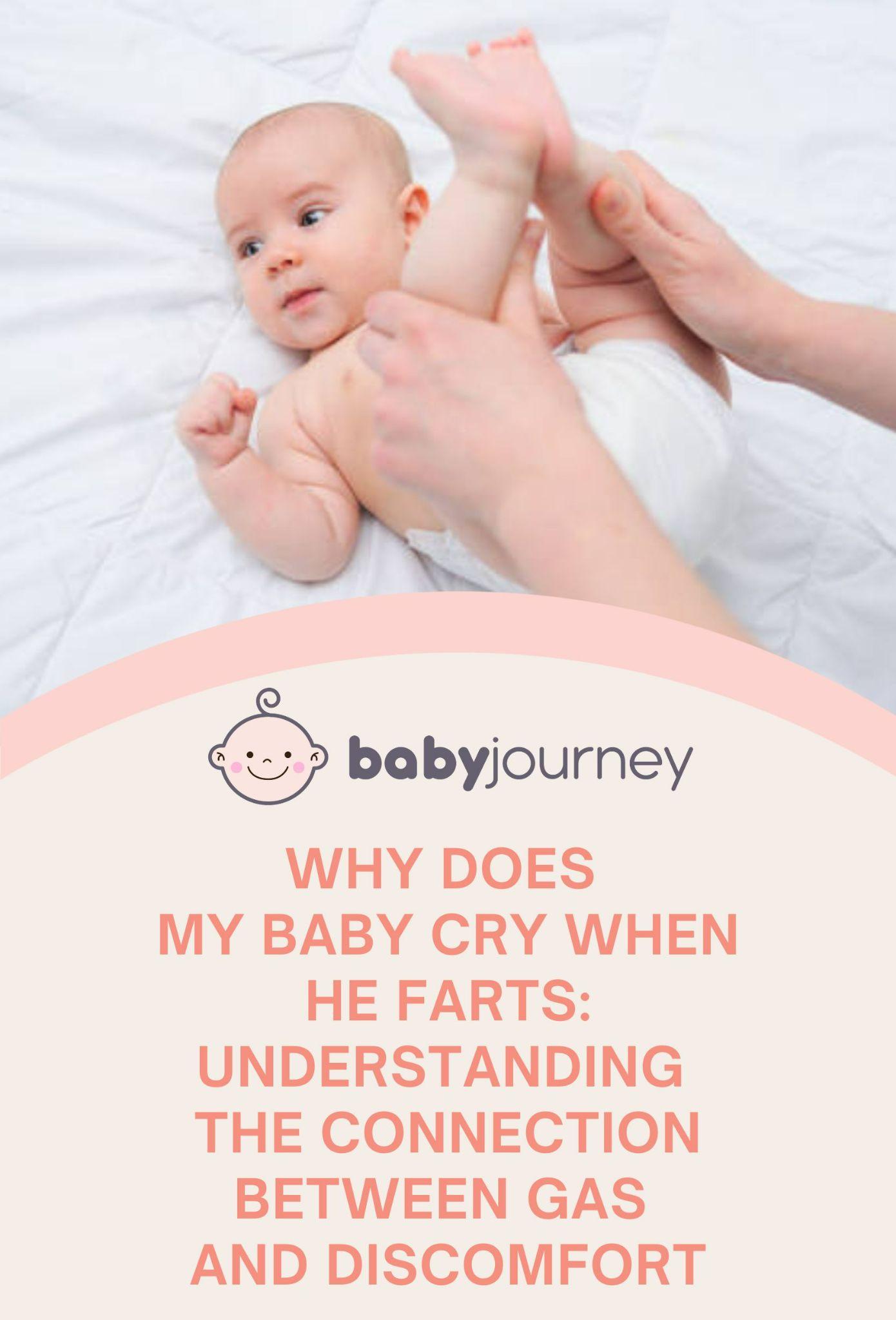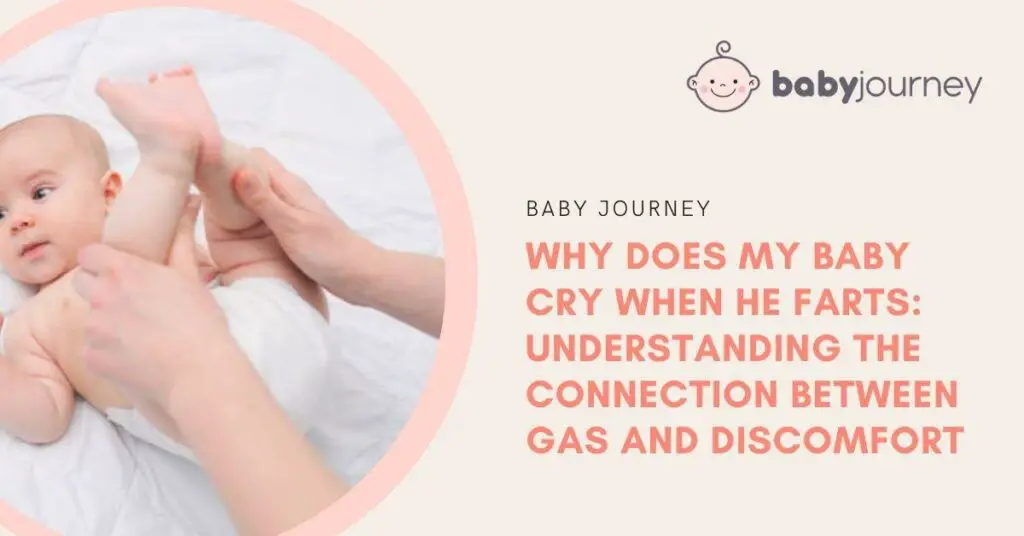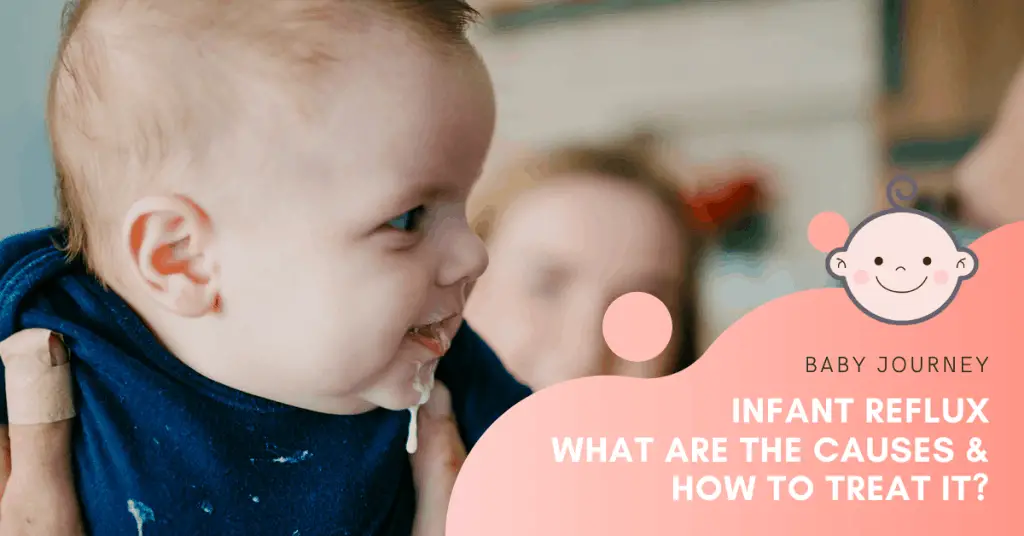Babies cry for various reasons, and one of them is when baby farts. If you are a new parent, you might be wondering why does my baby cry when he farts. It is a common concern among new parents, but the good news is that it is entirely normal for babies to cry when they fart.
Gas is a natural byproduct of digestion, and it is common for babies to have gas. However, babies have an immature digestive system, which makes it harder for them to pass gas. As a result, they may feel discomfort and pain when trying to pass gas, leading to crying. In some cases, babies may also cry when they hear the sound of their farts, which startles them.
Understanding Baby’s Cry
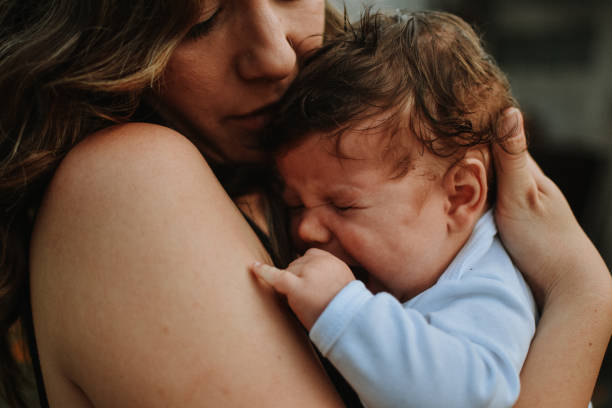
Babies cry to communicate their needs and feelings. Crying is a natural way for infants to express discomfort, hunger, pain, or a need for attention. It is the primary mode of communication for babies, especially in the first few months of life. Understanding a baby’s cry can help parents and caregivers respond appropriately to their needs.
There are different types of cries that babies use to communicate different needs. For example, a hungry cry may be more rhythmic and persistent, while a cry due to discomfort may be more high-pitched and intermittent. A baby’s cry due to passing gas may be accompanied by fussiness, squirming, and pulling up of legs.
When a baby cries due to passing gas, it is usually because of trapped gas in their abdomen. Little ones frequently experience painful gas bubbles that grow in their stomachs and irritate and hurt them. According to “Parents” magazine, babies between the ages of 3 and 6 weeks are particularly prone to gas. Gassy baby will be crying when baby farts, it is likely that they are experiencing pain.
To further help your baby alleviate the discomfort caused by gas, parents can try burping their baby after feeds to ensure no gas builds up. They should hold the baby and gently tap and rub the back muscles for them to burp. Additionally, putting the baby in positions that help them pass gas, such as holding them upright or gently pushing their legs towards their belly, can also provide relief.
In some cases, excessive crying due to gas may warrant a visit to the pediatrician. If a baby exhibits excessive crying, has long crying bouts three or more times per day, or has other symptoms such as vomiting or diarrhea, it is important to seek professional help.
In conclusion, understanding a baby’s cry is essential for parents and caregivers to respond appropriately to their needs. When a baby cries due to passing too much gas, it is usually because of trapped gas in their abdomen. Parents can try burping their baby after feeds and putting them in positions that help them pass gas to alleviate discomfort. If excessive crying persists, seeking professional help may be necessary.
The Link Between Farts and Crying
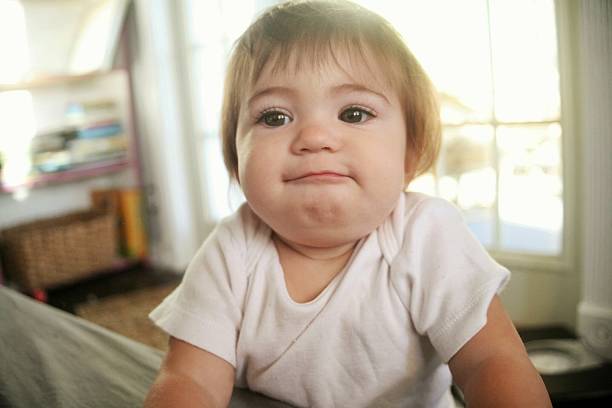
Baby’s Gas and Discomfort
It’s not uncommon for babies to cry when they fart. In fact, it’s a common source of discomfort for many infants. Babies are still developing their digestive systems and often swallow air while feeding, which can cause gas to build up in their abdomen. This gas can cause discomfort and pain, leading to crying and fussiness.
Gas pain in babies is usually caused by swallowing air while feeding or crying. This air can get trapped in the baby’s digestive system and cause discomfort. Babies may also experience gas pain due to the foods they eat or if they are lactose intolerant.
The Process of Farting in Babies
Farting is a natural process that helps release gas from the digestive system. In babies, this process is still developing, and it can take some time for them to learn how to release gas on their own.
Babies often need help releasing gas by burping or passing gas. Burping helps release air that is trapped in the stomach, while passing gas helps release gas that is trapped in the intestines.
If a baby is crying when they fart, it may be because they are having trouble releasing the gas. Parents can help their baby by gently massaging their abdomen to help move air bubbles and the gas along.
In conclusion, babies crying when they excessive farting is a common occurrence and can be a source of discomfort for many infants. Parents can help their baby by understanding the process of farting in babies and helping them release gas through burping or passing gas. If the crying persists or is accompanied by other symptoms, it’s important to consult a pediatrician to rule out any underlying medical issues.
Feeding and Its Effect on Gas
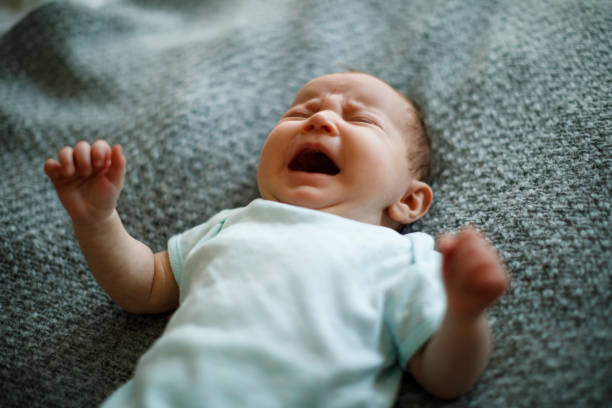
Breastfeeding and Gas
Breastfeeding is a natural and healthy way to feed a baby, but it can also contribute to gas. When a baby is breastfeeding, they may swallow air along with the milk. This can cause gas to build up in their stomach, leading to discomfort and crying. In addition, certain foods that a breastfeeding mother eats can also cause gas in the baby’s diet. Some babies may be more sensitive to certain foods than others. If a breastfeeding mother suspects that a particular food is causing gas in her baby, she may want to avoid that food for a while and see if it makes a difference.
To minimize gas during breastfeeding, it is important to ensure that the baby is latching on correctly. A good latch will ensure that the baby is getting enough milk and not swallowing air. The mother can also try different breastfeeding positions to see which one works best for her and her baby. Some positions can help the baby to burp and release any trapped gas.
Bottle Feeding and Gas
Bottle feeding can also contribute to gas in babies. When a baby is bottle-fed, they may swallow more air than when breastfeeding. This is because the milk flows faster from a bottle than from a breast, and the baby may not be able to keep up. In addition, some formerly breastfed babies may have trouble with certain types of nipples, which can cause them to swallow more air.
To minimize gas during bottle feeding, it is important to choose the right type of bottle and nipple. Some bottles are designed to reduce the amount of air that a whole baby sucks and swallows, while others have special venting systems that help to release trapped air. The nipple should also be the right size and shape for the baby’s mouth. It should allow the baby to suck without swallowing too much air.
In both breastfeeding and bottle feeding, it is important to burp the baby frequently. Burping can help to release any trapped air and prevent gas from building up in the baby fart stomach. A good rule of thumb is to burp the baby after every feeding, or whenever they seem to be uncomfortable or fussy.
Soothing a Baby Who Cries from Gas
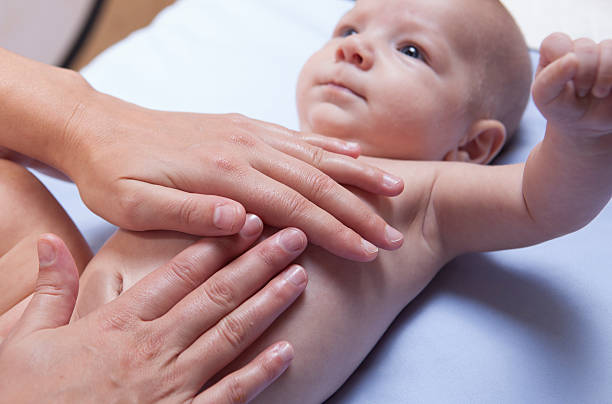
Babies crying from gas is a common occurrence, but it can be distressing for parents. Fortunately, there are several techniques that can help soothe a baby who cries from gas.
Burping Technique
Burping is a simple technique that can help relieve gas in newborn babies back. It involves gently patting or rubbing the baby’s back to help them release any trapped air. Here are some tips for effective burping:
- Burp frequently: Newborns may need to be burped after every feeding, while older babies may only need to be burped once or twice during a feeding.
- Sit the baby upright: Hold the baby in an upright position with their head resting on your shoulder or chest.
- Pat or rub gently: Use a gentle patting or rubbing motion on the baby’s back to encourage them to burp.
- Try different positions: Experiment with different positions, such as holding the baby facing down on your lap or sitting them up on your knee.
Positions to Relieve Gas
Changing the baby’s position can also help relieve gas. Here are some positions to try:
- Hold the baby upright: Hold the baby upright with their head resting on your chest or shoulder.
- Lay the baby on their back: Gently lay the baby on their back and move their legs in a bicycling motion to help release trapped gas.
- Lay the baby on their stomach: Place the baby on their stomach across your lap and gently rub or pat their back.
Other techniques that can help soothe a baby who cries from gas include:
- Rubbing the baby’s tummy in a clockwise motion to help move gas through their digestive system.
- Using a warm compress or hot water bottle on the baby’s tummy to help relax their muscles and relieve discomfort.
- Trying a different feeding position, such as holding the baby more upright during feedings.
It’s important to remain calm and patient when trying to soothe a baby who cries from gas. Remember that crying is a normal part of a baby’s development, and it’s okay to ask for help if you need it. If your baby’s crying is excessive or accompanied by other symptoms, such as fever or vomiting, it’s important to seek medical attention.
When to Seek Medical Help
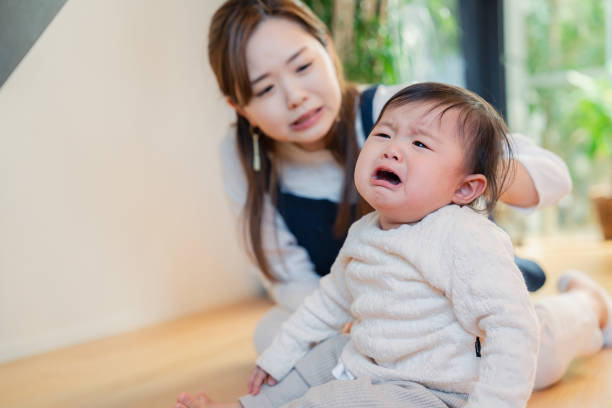
If a baby’s gas-related crying is severe or occurs alongside other concerning symptoms, it may be time to seek medical help. In this section, we will discuss how to recognize serious symptoms and when to consult a pediatrician.
Recognizing Serious Symptoms
While crying during gas is common in babies, there are certain symptoms that may indicate a more serious issue. If a baby displays any of the following symptoms, it’s important to seek medical attention:
- Crying for extended periods of time
- Refusing to eat or drink
- Vomiting
- Diarrhea
- Blood in the stool
- A fever of 100.4°F (38°C) or higher
- A bloated abdomen
- Difficulty breathing
If the baby is experiencing any of the above symptoms, it’s important to seek medical attention as soon as possible.
Consulting a Pediatrician
If a baby’s gas-related crying is persistent or accompanied by other concerning symptoms, it’s important to consult a pediatrician. A pediatrician can help diagnose any underlying medical conditions and provide professional medical advice on how to manage the baby breastfeeding mother’s diet and discomfort.
During the consultation, the pediatrician may ask questions about the baby’s symptoms, medical history, and feeding habits. They may also perform a physical exam to check for any abnormalities. Depending on the baby exercise situation, the pediatrician may recommend further diagnostic tests, such as blood work or an X-ray.
It’s important to seek medical advice from a qualified professional to ensure that the baby receives the proper diagnosis and treatment.
Conclusion
In conclusion, it is common for babies to cry when they fart. This is because their digestive system is still developing, and they may not be able to pass gas easily. The gas can get trapped in their gut, causing discomfort and pain. Newborns are especially prone to this, as their digestive system is not fully developed yet.
It is important to note that while crying when passing gas is common, it should not be ignored. If a baby is consistently crying and showing signs of discomfort, it is important to seek medical advice. A doctor can assess the situation and recommend treatment options.
There are several views on the best treatment for gas pain in babies. Some parents prefer natural remedies such as massage and bicycle legs, while others opt for over-the-counter gas drops. It is important to speak with a doctor before giving a baby gas or any medication or supplement.
When it comes to digestion, it is important to ensure that a baby is getting the right nutrients. Breast milk or formula should be the main source of nutrition for a baby. If a baby is still showing signs of discomfort eating, it may be necessary to switch to a different formula or make changes to the mother’s diet if breastfeeding.
It is important to note that crying when passing gas should not be confused with other issues, such as colic or reflux. If a baby is consistently showing signs of discomfort, or excessive gas, it is important to seek medical advice.
In summary, while crying when passing gas is common, it is important to ensure that a baby is not in pain or discomfort. Seeking medical advice and ensuring proper nutrition can help alleviate gas pain in babies.
Frequently Asked Questions
When do babies typically outgrow gas pains?
Babies typically outgrow gas pains by the time they are 4 to 6 months old. As their digestive system matures, they are better able to pass gas and have fewer episodes of gas pain.
Is it normal for babies to cry when passing gas and pooping?
Yes, it is completely normal for babies to cry when passing gas and pooping, especially during the first few months of life. Their digestive system is still developing, and they may have difficulty passing gas or stool, which can cause discomfort and pain.
Do colic babies tend to fart more frequently?
Colic babies may fart more frequently than other babies because they tend to swallow more air when they cry. This can lead to more episodes of gas pain and discomfort.
What can I do if my baby is screaming in pain from gas and constipation?
You can take a number of actions to assist your infant if they are wailing in agony from gas and constipation. You may try giving them a warm shower, belly-rubbing them, or applying a warm compress to their stomach. You can also try giving them a small amount of water or a gentle laxative, but be sure to consult with your pediatrician first.
At what age do babies typically outgrow gas-related pain?
Babies typically outgrow gas-related pain by the time they are 4 to 6 months old. However, some babies may continue to experience gas pain beyond this age.
What are some ways to help a baby struggling to fart?
There are several ways to help a baby struggling to fart. You can try massaging their belly in a clockwise direction, bicycling their legs, or placing them on their tummy for a few minutes. You may try giving them a warm shower, belly-rubbing them, or applying a warm compress to their stomach. Be sure to ask your pediatrician for more guidance if your child is still having trouble farting.
